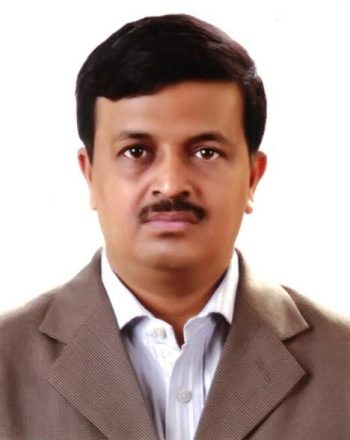
About Fazlous Satter:
I am an author, human rights, human security activist, and researcher from Bangladesh, currently working with the Centre for Human Rights, Development & Human Security (CHRDHS) as its founding Executive Director. I am also working as an Independent Research Consultant focusing on human rights, geopolitics, natural resources based conflict, and other human security-related issues. I have two published books.
Being a researcher I have numbers of research on human rights and human security in particularly on emerging as well as prevailing domestic conflicts, regional geopolitics, border and enclave people, police reform, indigenous land rights, forest conflicts, vulnerabilities of ethnic minority women as well as on land administration, and its challenges.
My newly published book is titled ” Understanding the World’s Longest Civil War: Colonial State Formations, Geopolitics, Conflict over Natural Resources, and the Genocide. ” which is now available at amazon.
This book is an overview of over seven decades-long civil war in Burma and its both internal and external actors, root causes as well as complex dynamics including global and regional geopolitics centering Burma, conflict over access and control of rich natural resources and also the politics of illicit drugs.
One of my research publication titled “Struggle for Survival: A Study on the Legal Status of the Mandi Peoples’ Land Rights in Modhupur Forest Area” is enlisted in the libraries of some of the world-famous universities that include Yale, Colombia, U-Chicago, UC Berkeley, Illinois, Minnesota, Heidelberg, Max Plank Institute, Iowa, etc.
Being an activist I have also participated in several international human rights training programs that include 23rd Annual International Human Rights Training Program (IHRTP) conducted by the International Centre for Human Rights Education (EQUITAS); which at that time known as the Canadian Human Rights Foundation (CHRF) and 16th Geneva Advance Training Course (GTC) on International Human Rights Law and Diplomacy organized by the International Service for Human Rights (ISHR).
As a part of my online activism, I am also working as an administrator of a few social media groups on human rights, environmental justice, and geopolitics.
Besides activism and research, I was also involved with both print and electronic media of Bangladesh as a journalist for a long while.
Being a journalist I was involved with various national level media that includes Radio Metro-Wave (Head of News), Weekly Jai Jai Din (Political analyst & Regular Columnist), Jai Jai Din Protidin (Senior Reporter), Prothom Alo (Reporter for a brief period), Daily Ajker Kagoj (Sub-Editor), Dainik Desh Bangla (Senior Reporter), Dainik Lal Sabuj (Sub-Editor), Fortnightly ANANYA (Reporter), etc
What inspires you to write?
My reading habits as well as empathy towards the people’s struggle for a universal culture of human rights always inspired me to write.
What authors do you read when you aren’t writing?
Noam Chomsky, Amartya Sen, Arundhati Roy, Naomi Klein, Maxim Gorky, Leo Tolstoy, Boris Polevoy, Alex Haley, Vandana Shiva, Shawkat Ali, Zia Haider Rahman, etc.
Tell us about your writing process.
Being a research-based author I have no alternative left but to outline a book before writing. Usually, I use both computer software and paper note pad in outlining. It starts from the concept development phase that advanced through the primary and secondary resource collections, reading, note-taking, and ended in final editing. Even before, consulting the resources, I used to outline the thematic areas of tentative chapters that gradually shape through study, draft, and final editing.
What advice would you give other writers?
Please, don't forget the truth and your intellectual responsibility to expose lies.
How did you decide how to publish your books?
Apart from royalty and other issues, my first consideration is which platform can reach the targeted readers of my book. For my home country readers, a traditional publisher is still the best choice as our domestic book market yet to integrate into international market options in terms of government policies and other issues.
On the other hand, when I would like to address the international readers, my first consideration is which publisher/ platform has the technological capability to be global in real sens.
What do you think about the future of book publishing?
I think besides maintaining the quality and depth of knowledge that our rapidly changing time demands, the future of book publishing depends on the innovation and the capacity of adoption with the changing technology.
What genres do you write?: Political and Social Science, International Relations, Security, Human Rights, Natural Resources based Conflicts.
What formats are your books in?: Both eBook and Print
Website(s)
Fazlous Satter Home Page Link
Your Social Media Links
Goodreads
Facebook
Twitter
Pinterest
LinkedIn
All information in this post is presented “as is” supplied by the author. We don’t edit to allow you the reader to hear the author in their own voice.
